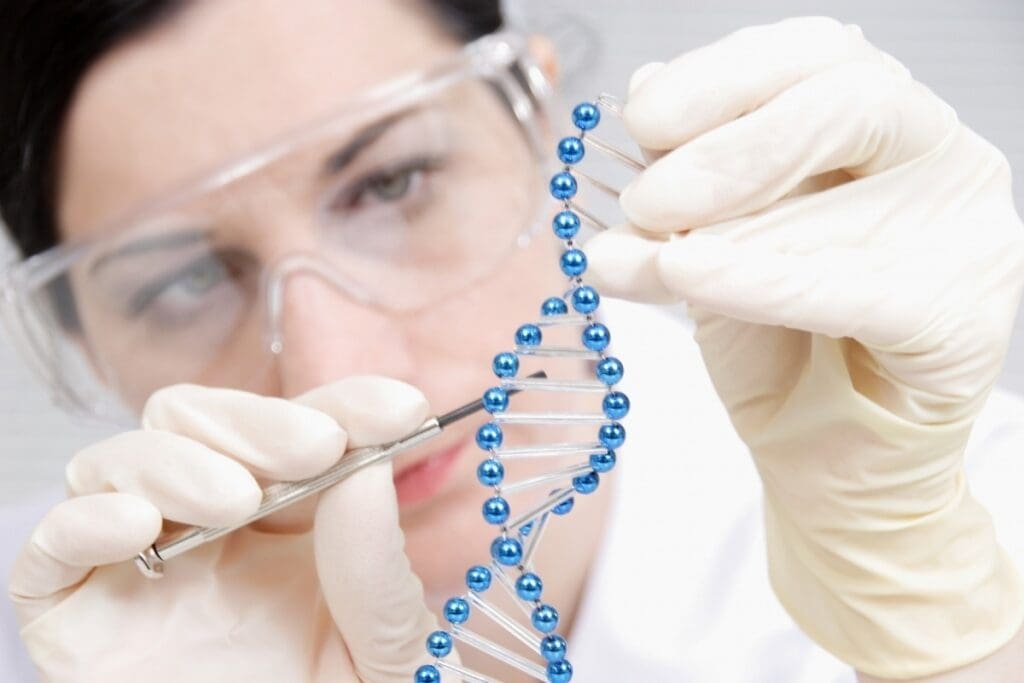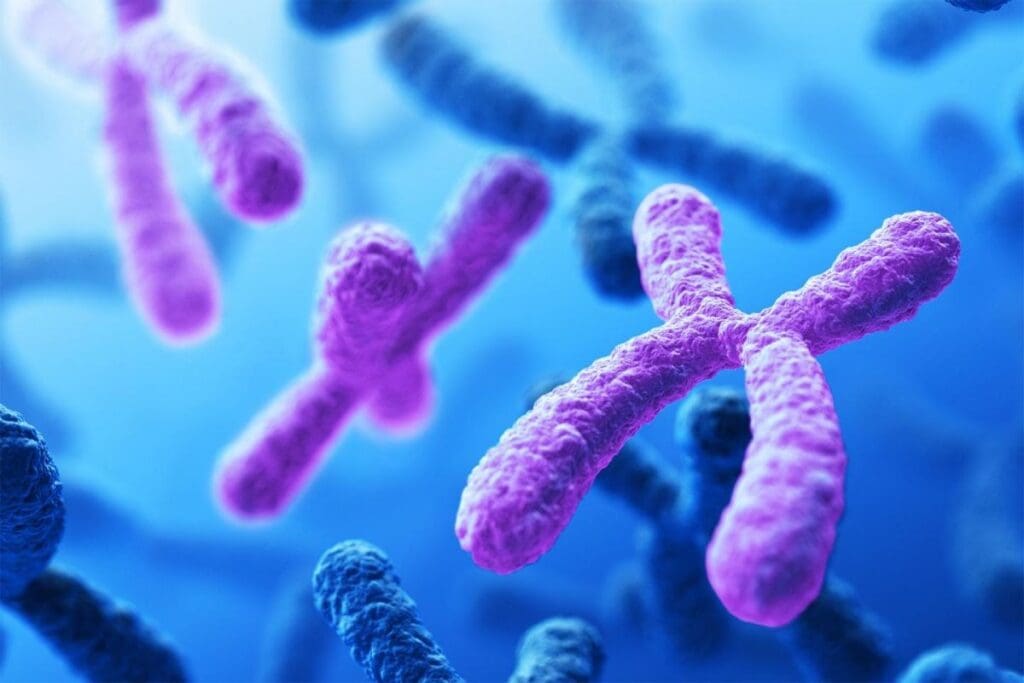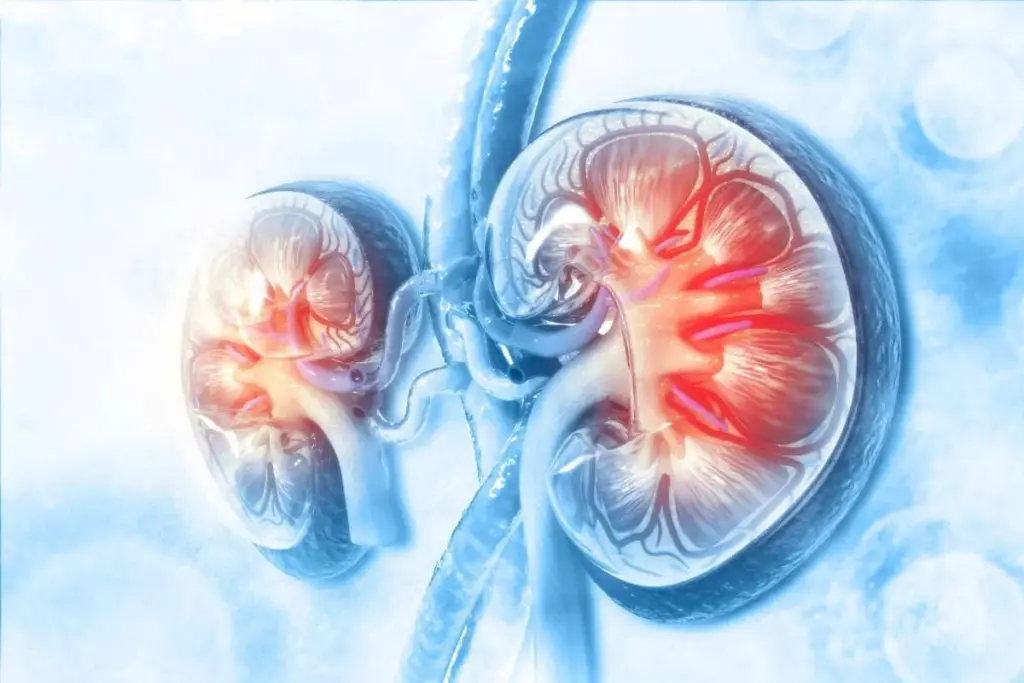
Expectant parents often worry about their baby’s health. Genetic abnormalities and foetal disorders are big concerns. At LivHospital, we offer top-notch healthcare and support for international patients.
Every year, about 7.9 million babies are born with serious birth defects. But, research shows that with the right planning, we can lower this number. Taking a daily prenatal vitamin with at least 400 micrograms of folic acid can prevent many genetic abnormalities.
We’ll look at how you can lower the risk of genetic abnormalities during pregnancy. Our goal is to give you the care and support you need at this important time.
Key Takeaways
- Prenatal vitamins with folic acid can help prevent genetic abnormalities.
- Informed planning is key to reducing the risk of foetal disorders.
- Using evidence-based preventive measures can greatly lower genetic abnormalities.
- Expectant parents should know the risks and take action.
- LivHospital offers full support and guidance for international patients.
Understanding the Scope of Birth Defects and Genetic Abnormalities
Birth defects and genetic abnormalities worry expectant parents everywhere. Each year, 7.9 million infants are born with serious birth defects worldwide. This is why it’s key to grasp these conditions.
Global Statistics: 7.9 Million Infants Affected Annually
The World Health Organization says birth defects lead to a lot of infant deaths and disabilities. “Birth defects are a big reason for sickness and death in kids under five,” they note. This shows why we need to spread awareness and take steps to prevent them.

Common Types of Chromosomal Abnormalities
Chromosomal issues, like Down syndrome, are common genetic problems. Down syndrome happens in about 1 in 800 births. The risk goes up a lot with the mother’s age. Other common issues include Turner and Klinefelter syndromes.
- Down syndrome: Caused by an extra copy of chromosome 21.
- Turner syndrome: Affects females, caused by a missing or partially missing X chromosome.
- Klinefelter syndrome: Affects males, caused by an extra X chromosome.
The Connection Between Maternal Age and Down Syndrome Risk
The chance of Down syndrome goes up a lot with the mother’s age. For moms under 35, the risk is 1 in 2,000. But at 40, it jumps to 1 in 100. This makes it vital for older moms to know the risks and get prenatal tests.
“The risk of having a child with Down syndrome increases with maternal age, specially after 35.”
Knowing these risks helps parents make better choices about their pregnancy. This includes thinking about prenatal tests and other ways to prevent problems.
Seek Preconception Genetic Counselling
Seeking preconception genetic counselling helps you make informed choices about your pregnancy. It’s not just about wanting a healthy baby. It’s about understanding your genetic risks and how to reduce them.
Assessing Your Family History
Looking at your family history is key in preconception genetic counselling. Our experts will help you find any genetic disorders in your family, like cystic fibrosis or sickle cell anemia. Knowing this helps figure out your risk of passing these conditions to your kids.
“Knowing your family’s medical history can show genetic risks,” says a leading expert in genetic counselling. “This lets you take steps towards a healthier pregnancy.”
Carrier Testing for Genetic Disorders
Carrier testing is a simple but powerful tool. It helps find genetic disorders that could be passed to your children. We test for many conditions, giving you the info you need for reproductive choices.

Creating a Personalized Risk Reduction Plan
After looking at your family history and doing carrier testing, we create a plan just for you. This plan is based on your needs and situation. It shows you how to lower your risks and have a healthy pregnancy.
If you’ve had a baby with a birth defect before, we can help. We’ll explain why it happened and how to avoid it next time. Our aim is to give you the knowledge and support for a successful pregnancy.
Optimize Your Nutrition to Prevent Birth Defects
Good nutrition is key for a healthy baby. A balanced diet gives both mom and baby the nutrients they need.
The Critical Role of Folic Acid
Folic acid is very important for preventing birth defects. It can lower the risk of neural tube defects by up to 70%. Take 400 micrograms of folic acid every day, starting a month before pregnancy and all through it.
Folic acid is very important. It helps prevent serious birth defects. Making sure you get enough folic acid is a simple way to support a healthy pregnancy.
Essential Vitamins and Minerals for Fetal Development
Other vitamins and minerals are also key for a baby’s growth. These include:
- Iron: important for making red blood cells
- Calcium: needed for the baby’s bones, teeth, and muscles
- Protein: important for the baby’s growth
- Omega-3 fatty acids: good for the baby’s brain and eyes
Foods to Include and Avoid During Pregnancy
Eating a variety of foods is good for a healthy pregnancy. Include:
- Leafy green vegetables for folate
- Fortified cereals for folic acid
- Nuts and seeds for healthy fats and protein
- Lean proteins for the baby’s growth
Also, avoid certain foods. These include:
- Raw or undercooked meats and eggs
- High-mercury fish
- Unpasteurized dairy products
Making smart food choices can lower the risk of birth defects. We’re here to help you make the best choices for a healthy pregnancy.
Schedule Appropriate Prenatal Screening Tests
Screening tests are key in prenatal care. They help find possible issues with the fetus. These tests give parents insights into their baby’s health, helping them make informed choices.
First Trimester Screening Options
The first trimester is a critical time for early screening. Nuchal translucency scanning is done between 11 and 14 weeks. It checks the fluid at the baby’s neck.
This test, along with blood tests, looks for chromosomal issues like Down syndrome. Non-invasive prenatal testing (NIPT) is also used. It looks at DNA in the mother’s blood for common conditions. This test starts after 10 weeks.
Second Trimester Diagnostic Tests
The second trimester brings more detailed tests. The anatomy scan is done between 18 and 20 weeks. It’s a detailed ultrasound that checks the baby’s body for any issues.
Other tests include amniocentesis and chorionic villus sampling (CVS). These tests look at amniotic fluid or placental tissue for genetic problems.
Advanced Genetic Testing Methods
Genetic testing has improved a lot. Preimplantation genetic diagnosis (PGD) and preimplantation genetic screening (PGS) are used with IVF. They test embryos for genetic issues before they’re implanted.
These methods give a deeper look at the fetus’s genetic health. They help parents understand more about their pregnancy.
Consider Advanced Reproductive Technologies
For couples at high risk of genetic abnormalities, advanced reproductive technologies offer hope. These technologies have improved the chances of a healthy pregnancy. They also give couples more control over their reproductive health.
Preimplantation Genetic Diagnosis (PGD) is a big step forward. PGD screens embryos for genetic disorders before they are implanted during IVF. It’s very helpful for couples who carry genetic disorders.
Preimplantation Genetic Diagnosis (PGD)
PGD is a technique used during IVF to diagnose genetic diseases in embryos. It involves:
- Biopsying cells from the embryo
- Analyzing the genetic material of these cells
- Selecting embryos that are free from specific genetic disorders for transfer to the uterus
PGD significantly reduces the risk of genetic abnormalities in pregnancy. It offers a more targeted approach than traditional prenatal testing methods.
In Vitro Fertilization with Genetic Screening
In Vitro Fertilization (IVF) with genetic screening goes beyond PGD. It screens for chromosomal abnormalities in addition to genetic diseases. This ensures only healthy embryos are selected for implantation.
The benefits of IVF with genetic screening include:
- Reduced risk of miscarriage due to chromosomal abnormalities
- Lower risk of failed implantation
- Increased chances of a successful pregnancy
Options for High-Risk Couples
For couples at high risk of passing on genetic abnormalities, several options are available:
- PGD and IVF with genetic screening
- Donor egg or sperm programs
- Adoption
Each option has its own considerations and emotional implications. We recommend that high-risk couples consult with a fertility specialist. This helps determine the best course of action for their specific needs.
In conclusion, advanced reproductive technologies have opened new avenues for couples at risk of genetic abnormalities. By understanding and leveraging these technologies, couples can make informed decisions. This significantly reduces the risk of genetic abnormalities in their pregnancy.
Eliminate Environmental and Lifestyle Risk Factors
To lower the risk of genetic problems, it’s key to avoid harmful environmental and lifestyle factors. Making smart choices and living healthier can greatly improve pregnancy results. This helps reduce the chance of common birth defects.
Harmful Substances to Avoid
Staying away from harmful substances is vital for a healthy pregnancy. This means no alcohol, tobacco, or illegal drugs. These can raise the risk of pregnancy issues and birth defects. Here’s what we recommend:
- Avoid alcohol during pregnancy.
- Stop smoking and avoid secondhand smoke.
- Don’t use illegal drugs.
- Limit chemical and toxin exposure at work and home.
Managing Pre-existing Medical Conditions
Pre-existing health issues can affect pregnancy. It’s important to manage them well before and during pregnancy. Here’s how:
- See your doctor to manage conditions like diabetes, high blood pressure, and epilepsy.
- Change medications and treatments as needed to keep them safe during pregnancy.
- Keep a healthy weight and eat well.
Optimal Timing for Pregnancy
The right time for pregnancy can help avoid environmental risk factors and lifestyle risk factors. Planning when you’re healthy and not stressed can lead to better outcomes. Think about:
- Planning when you’re in good health and not stressed.
- Avoid pregnancy during extreme weight changes.
- Get all recommended vaccinations before trying to conceive.
Reducing Workplace and Environmental Exposures
Exposure to harmful substances at work and in the environment can be risky during pregnancy. To lessen these risks, consider:
- Check your workplace for hazards and talk to your employer about changes.
- Stay away from toxic chemicals and heavy metals.
- Wear protective gear and follow safety rules.
By following these steps, we can reduce environmental risk factors and lifestyle risk factors. This makes a safer, healthier space for your unborn baby. It’s about making smart choices and living healthier to support a good pregnancy.
Conclusion: Implementing a Comprehensive Prevention Strategy
Adopting a comprehensive prevention strategy can greatly lower the risk of genetic problems and birth defects. At LivHospital, we use preconception genetic counselling, good nutrition, prenatal screening, and avoiding harmful substances. This ensures the best outcomes for you and your baby.
A good pre-birth plan involves looking at your family history and carrier testing for genetic disorders. It also means creating a plan to reduce your risk. Eating right, with lots of folic acid, and getting the right prenatal tests are key steps.
At LivHospital, we’re here to support you all the way. We consider advanced reproductive technologies and help you avoid environmental and lifestyle risks. This way, we help you have a healthy pregnancy.
FAQ’s:
What are the most common types of chromosomal abnormalities?
Chromosomal abnormalities include Down syndrome, Turner syndrome, and Klinefelter syndrome. These happen when there’s a change in the number or structure of chromosomes.
How can I reduce the risk of neural tube defects during pregnancy?
Taking folic acid before and during early pregnancy can lower the risk of neural tube defects. We suggest a daily folic acid supplement and eating foods like leafy greens and fortified cereals.
What is preconception genetic counseling, and how can it help?
Preconception genetic counseling looks at your family history and carrier testing for genetic disorders. It helps spot risks and lets you plan to reduce them.
What prenatal screening tests are available during pregnancy?
Prenatal screening tests include first trimester options like nuchal translucency ultrasound and blood tests. Second trimester tests are amniocentesis and chorionic villus sampling (CVS). Non-invasive prenatal testing (NIPT) is also available.
How can I minimize environmental and lifestyle risk factors during pregnancy?
Avoid harmful substances like tobacco, alcohol, and chemicals. Manage any health conditions you have. Also, reduce exposure to harmful substances at work and in your environment.
What is preimplantation genetic diagnosis (PGD), and how can it help?
PGD is used during IVF to check for genetic disorders in embryos before they’re transferred. It helps couples at risk of genetic problems have a healthy pregnancy.
How does maternal age affect the risk of Down syndrome?
The risk of Down syndrome goes up with maternal age, after 35. We advise older mothers to talk about their risks and options with a healthcare provider.
What are some essential vitamins and minerals for fetal development?
Important nutrients include folic acid, iron, calcium, and omega-3 fatty acids. Eating a balanced diet with whole foods helps ensure you get these nutrients.
Can genetic abnormalities be detected during pregnancy?
Yes, genetic issues can be found during pregnancy with screening and diagnostic tests. These tests help identify problems and guide decision-making.
How can I create a safe and healthy environment for my unborn baby?
To keep your baby safe, avoid harmful substances and manage health conditions. Reduce exposure to harmful substances at work and in your environment. A healthy lifestyle and regular prenatal care support a healthy pregnancy.
REFERENCES:
- Dungan, J. S. (2025, April 9). Genetic counselling and genetic testing before pregnancy. In MSD Manual. https://www.msdmanuals.com/home/women-s-health-issues/detection-of-genetic-disorders-before-and-during-pregnancy/genetic-counseling-and-genetic-testing-before-pregnancy
- Bale, J. R. (2002). Interventions to reduce the impact of birth defects. World Health Organization. https://www.ncbi.nlm.nih.gov/books/NBK222083/
- Centers for Disease Control and Prevention. (2025, June 12). Preventing birth defects. https://www.cdc.gov/birth-defects/prevention/index.html








